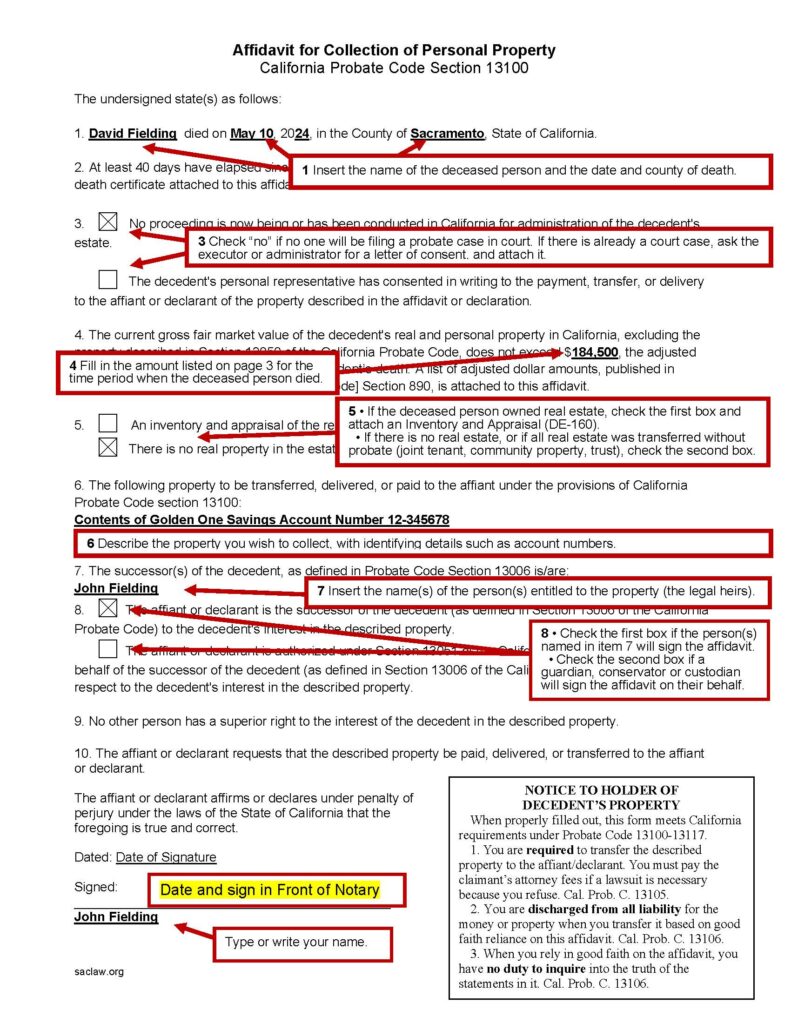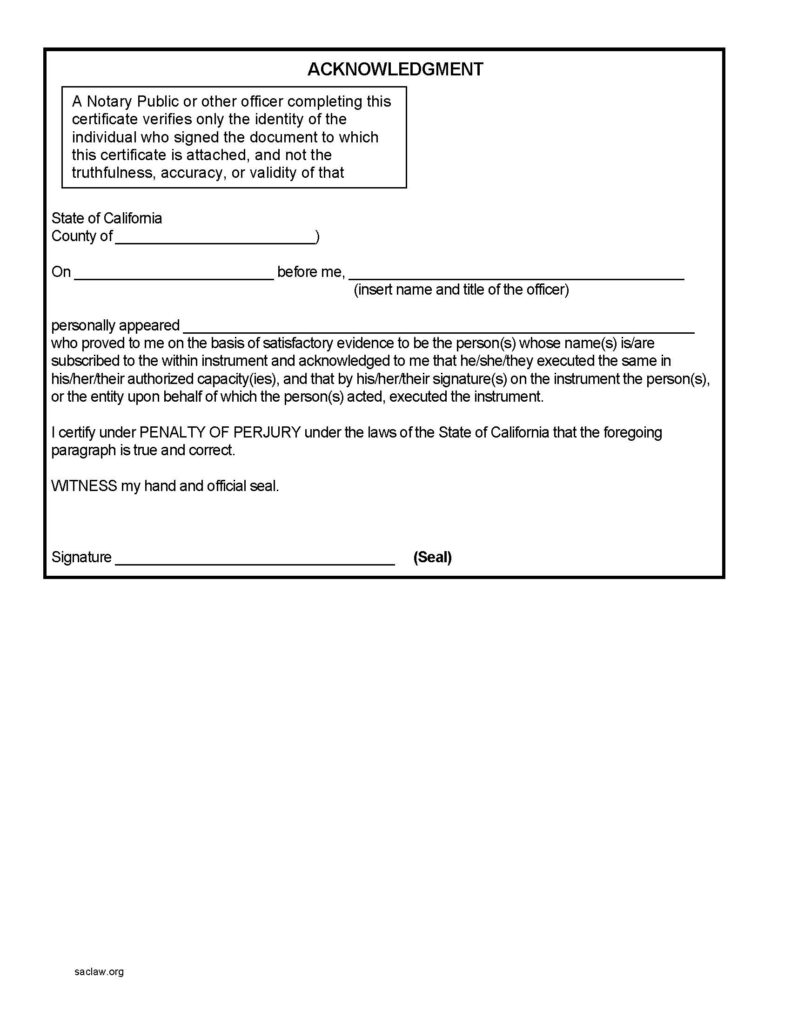

Procedures in this guide apply only to personal property valued under $166,250/$184,500
This guide only applies to personal property (money and moveable property like jewelry, vehicles, tools, etc.) For Real Property valued under $166,250 (4/1/2022) or or $184,500 (4/2/2022), you cannot use this form, but there may be alternatives to formal probate, such as a Petition for Succession to Real Property.
Read How to Probate an Estate in California, Chapter 8, for more information.
In certain circumstances, personal property may be transferred to the decedent’s successors without a formal probate. If the decedent’s estate qualifies under California Pro. Code §§ 13100-13116, the person(s) entitled to the property may present a Small Estate Affidavit, commonly known as an Affidavit for Collection of Personal Property, to the person or institution having custody of the property, requesting that the property be delivered or transferred to the successor.
Personal property refers to anything that isn’t real estate. Common types of personal property include furniture, jewelry, and household goods, as well as bank accounts, stocks, and money due to the decedent.
Personal property may be collected using the Affidavit for Collection of Personal Property if:
Instructions for completing the Affidavit for Collection of Personal Property are included at the end of this guide.
Although Pro. Code § 13101 states that a declaration under penalty of perjury is sufficient, many institutions require a notarized affidavit, especially when securities are involved. Contact the institution to determine if notarization is necessary.
If there are several assets to be transferred, they may all be included on one affidavit, or a separate affidavit may be used for each. If more than one person is entitled to inherit a particular asset, all beneficiaries must sign a single affidavit.
The Affidavit for Collection of Personal Property must be accompanied by:
If stocks or bonds are being transferred, you will also need to attach:
More Information:
Samples of these additional attachments are available in How to Probate an Estate in California from Nolo Press, Chapter 11.
Present the completed Affidavit and required attachments to the person or institution having custody of the property.
Adapted, with the kind permission of author Richard Wills, from “Washington State Probate,” at his Washington State Probate website.
Probably the most popular use of a “Small Estate Affidavit,” also called “Affidavit for Collection of Personal Property,” is to access a Decedent’s bank or securities account. The practical (as opposed to legal) problem is that banks, brokerages, transfer agents, and institutions in general are used to transferring such accounts through a probate proceeding, in which the Personal Representative delivers a copy of his/her Letters to the institution and requests the transfer. That’s the method that institutions are familiar with, and they have come to see it as “the proper (and only) procedure” for making the transfer. Consequently, far too often, when a Successor presents a Small Estate Affidavit to an institution, the institution responds “We need Letters to make the transfer.”
How to respond? In a word, be persistent and play “broken record” (repeat items 2 through 7 below over and over to the agent):
Be forewarned, so that you may properly prepare. In your author’s experience, the grand champions of resistance to Small Estate Affidavits are downtown branches of large banks (e.g., Bank of America, US Bank, etc.), and East Coast (particularly New York) securities transfer agents.
How to Probate an Estate in California KFC 205 .N57 (Self Help)
Electronic Access: From any computer (Library or home) via the Legal Information Reference Center.



This material is intended as general information only. Your case may have factors requiring different procedures or forms. The information and instructions are provided for use in the Sacramento County Superior Court. Please keep in mind that each court may have different requirements. If you need further assistance consult a lawyer.